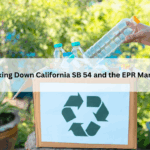
(Material compliance regulations are a critical part of the global food and beverage industry. These regulations are essential to ensure the health and safety of consumers.)
Globalization has opened up boundaries for players in the food and beverage industry. To preserve brand identity and maintain end-to-end material compliance regulations, the processors of food and beverages have to adhere to different global standards. Resultantly, it has become important for manufacturers to update themselves about the major regulatory bodies located worldwide. They have to be in complete sync with the safety standards laid down by these bodies that varies across nations.
Need for Global Standards and Material Compliance Regulations
Manufacturers, processors and other stakeholders of the F&B industry have to increase their ability to understand the governing regulatory standards. They must keep abreast of all regulatory changes to ensure consumer consumption safety and achieve compliance. Depending on the nature of processing, F&B manufacturers should be aware of these (and all other relevant) material compliance regulations to meet consumer safety concerns.
CA Prop 65
The Proposition 65 program is administered by the Office of Environmental Health Hazard Assessment (OEHHA). OEHHA is a part of the California Environmental Protection Agency (CalEPA).
- Prop 65 requires businesses to adhere to the legal and scientific requirements while using chemicals.
- Warning labels and signs are sent out to manufacturers when they intentionally cause significant exposures to the chemicals known to cause harm.
- Prop 65 requires food and beverage processors, manufacturers and others in the supply chain to let Californians know about exposures to chemicals that cause cancer, birth defects or other reproductive harm.
- OEHHA’s has a list of chemicals that can be categorized as ‘potential carcinogen’ or carrying ‘reproductive toxicity. The list is available on OEHHA’s website.
Given this, manufacturers should have detailed knowledge about the Proposition 65 list, how the regulators can govern warnings, as well as all other aspects of CA Prop 65.
FDA
A long list of chemicals and materials are pre-approved by the U.S. Food and Drug Administration (FDA) for contact with foodstuffs.
- FDA registration is a must for units that manufacture, pack, process, pack, or provide storage for dietary supplements, beverages and food; these products may be for the consumption of animals or humans in the United States.
- A U.S. Agent for FDA compliances and communications has to be designated by companies situated outside the United States.
- The Food Safety Modernization Act (FSMA) has altered several food safety regulations laid down by FDAs. It is important for companies to attain FDA compliance by investing in Food Safety Plans, Food Defense Plans, HACCP Plans, FDA inspections, FSVPs for importers, etc.
As a primary governing body, FDA handles food additive standards. Most materials on this list are used in hygienic gaskets, compression packings and seals.
TSCA
The Toxic Substances Control Act (TSCA or TOSCA), passed in 1976, is administered by the Environmental Protection Agency (EPA) in the United States. It is responsible for the regulation of new or existing chemicals used in the industry.
- A self-declaration document, the TSCA certificate is needed to show customs that the chemical substances used by companies, and imported into the United States, are in full compliance with TSCA requirements.
- TSCA regulations are used to evaluate all potential risks from existing or new chemicals. Full material compliance is necessary on the part of the food and beverages industry to address any unreasonable risks caused by the used chemicals on human health or the environment.
FFDCA
The United States Federal Food, Drug, and Cosmetic Act of 1938 (APA) was passed in 1938. It established the quality standards for drugs, food, cosmetic and medical devices manufactured and marketed in the United States.
- FFDCA tightens the controls over drugs and food. It has introduced new consumer protection laws for the food and beverages industry. Any non-adherence on the part of companies is likely to invite prosecution.
- This Act also takes care of federal enforcement and oversight of the laid down standards.
FCM – Food Contact Materials
The EU regulations on food contact materials may apply to all FCMs or certain materials only. These EU laws are likely to be enforced along with the national legislation of Member States – in case specific EU regulations do not exist.
- They check for the harmful effects on health attributed to ingestion of food constituents, especially those that do not adhere to FCM standards.
- The regulations and amendments related to FCM impact the F&B companies in different countries. They mainly emphasize on important aspects like traceability and the safeguard measures of different EU framework regulations.
- The compliances for Food contact notification of USFDA are also checked for by the EFSA for FCM standards.
The European Food Safety Authority (EFSA) is responsible for FCM safety. For instance, the EU level Union legislation related to food contact materials ensures proper functioning of internal markets and protects consumers’ health.
EU Food Regulations
The European Union (EU) administers the Regulation on Registration, Evaluation, Authorization and Restriction of Chemicals (REACH). It aims to protect the environment and human health from the risks linked to different hazardous chemicals.
- The principal aim of ‘General Food Law’ is to safeguard consumer’s interest and human health with respect to food and beverage. Companies in all stages of production or processing of food products have to comply with these regulations.
- The EU food regulations (food and feed safety laws) applies to F&B companies involved with the distribution of feed and food.
Conclusion
As a part of the food and beverage industry, you have to ensure the safety and high quality of all products. This is possible through the proper management of material compliance regulations and the prescribed comprehensive tests. Get in touch with trusted experts to maintain compliance with international standards, while keeping your data secure.
Talk to a Global Compliance Specialist today!





